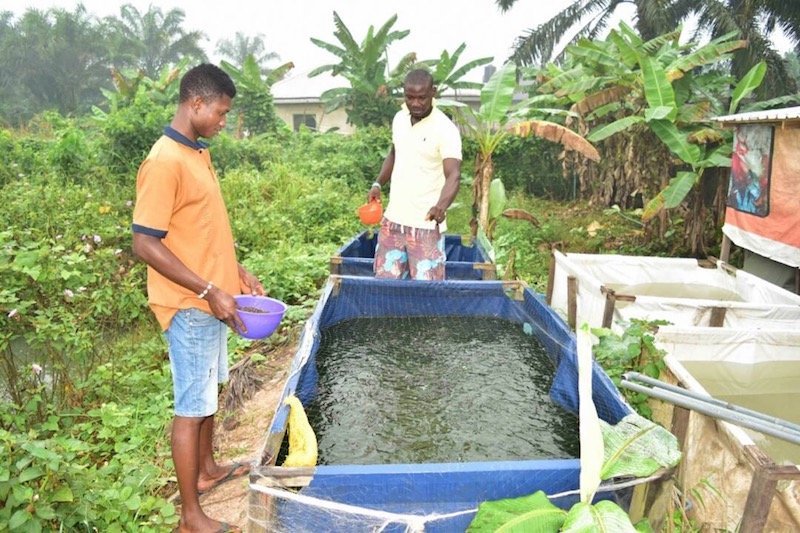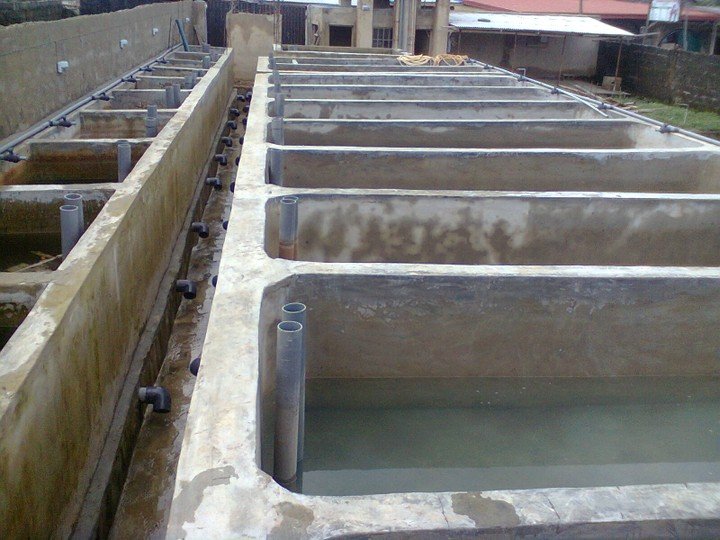How To Set Up Catfish Hatchery In Nigeria

How do you start a catfish hatchery in Nigeria? How much does it cost to start a catfish farm in Nigeria? How do I start a small catfish farm? How do I start a fish hatchery business? How many fingerlings can a catfish produce? What size of a pond can contain 1000 fish? Is the catfish business profitable in Nigeria? Is fish farming a lucrative business in Nigeria? Is the fish business profitable? Are fish hatcheries profitable? How much does it cost to start a fish farm in Nigeria? How do catfish farmers make money?
See Also: How To Get A Business Loan Without Collateral In Nigeria?
Hatchery Techniques/Procedures Of Reproduction
Catfish Hatchery Equipment List
- Spawning mop: coloured mosquito net or rice bags in loose strands like a sponge
- Razorblade
- Sharp knife
- Syringe (2 or 5ml) and needle
- Cutter, scissors
- Small glass or aluminium mortar and pestle or you can use a water bottle cover and syringe head
- Tablespoon and table salt
- Empty water bottle (1 or 1.5lt) and plastic funnel
- White Tissue paper
- Handkerchief or hand towel
- Deep Small plastic plate
- Weighing scale (optional)
- Plastic buckets
- Clean water (borehole or well)
- White and coloured mosquito net
- Scarf material
- Aluminium rail
- Metal hanger
- Thread and needle
- Metal pole
Catfish Hatchery Process In Nigeria
Wash the pond thoroughly and examine it to ensure that there are no potholes, cracks or leakages.
Fill it with water up to 5inches level from the floor of the pond.
Thereafter, spread the mop in the water close to the inlet pipe and separate the mot from the rest of the pond with a wooden or plastic board and further still, cover the rest area.
Use the appropriate filter (the one made with a white mosquito net) to block the water outlet constructed with the one half inch plastic pipe to avoid flushing out the fish fries through the plastic water outlet.
Identification Of Male And Female Fish
Two female catfish particularly the one with eggs are easily identified because it has a bigger stomach compartment while the male has a smaller stomach compartment.
Besides, the genitals of the male fish are long while that of the female are round.
In identifying the female catfish suitable for hatchery purposes, you may discover some 100g are having eggs already but it is preferable to use those with eggs of 400g body weight and above.
Make sure that the female catfish is up to 8 months old – their eggs must be between dark golden-green and golden in colour – in order to ensure better results.
Note that the older and bigger the broodstocks, the higher the production of shooters you’ll get from the fingerlings population.
As for the male fish, the genital which is located immediately below the anus must be longer than the upper end of the anal fin.
Furthermore, you can also test for maturity of fish suitable for breeding, using the colour of their genitals.
Check if their genitals – male and female – are reddish in colour. If they are then they are suitable.
How To Inject Catfish For Hatching
One of the following can be used to inject the female fish:
- Pituitary gland: from either the male or female catfish
- Ovaprim: industrially produced cow urine in a 10ml bottle
- Human chorionic gonadotropin, HCG – early morning pregnant woman’s urine as from the 5th month of pregnancy
How To Produce The Pituitary Gland Injection Solution And Inject The Female Fish
The pituitary gland can be extracted from either the male or female catfish whether up to 6 months or not.
But the bodyweight of the fish donor whose pituitary gland you are using must be slightly more than that of the female fish recipient you are injecting.
As such you can use one or more fish whose weights are slightly more than that of the female fish as donors.
The injection dose is 2ml or a syringe of the ground pituitary gland and saltwater solution.
Requirements:
- Sharp knife
- Mature male and female catfish
- Handkerchief or hand towel
- Tissue paper
- Syringe (2ml or 5ml)
- Cutter
- Small glass or aluminium mortar and pestle or use water bottle cover and syringe head
- Plastic funnel
- Tablespoon and table salt (10g)
- Empty water bottle (1 or 1.5lt)
- Weighing scale (optional)
- Clean water
- Plastic buckets
Note that the male fish should be about 100g bigger than the female.
Procedure:
- Put one level tablespoon (10g) of table salt into a clean water bottle of 1 or 1.5lt
- Cut off the head of the donor catfish and remove the lower soft part of the head gently so as to break the skull of the fish. Thereafter dress the skull gradually, removing all the sufficient parts and then use the cutter to pierce open the brain compartment where the pituitary gland is located and extract the gland carefully using pinchers of the tip of the knife
- Put the gland into the mortar (glass vial) or water bottle cover
- Take your syringe and draw 2.3ml of the salt solution. Draw the solution back, pulling the syringe head backwards and thereafter use the syringe head to grind the pituitary gland. Alternatively, you can use the glass rod as a pestle for grinding in place of the syringe
- Put the salt solution in the syringe into the grounded pituitary gland and mix together with the syringe head or pestle (glass rod) before finally drawing with the syringe, all available liquid from the gland mixture and adjust it to 2ml before injecting the fish
Please note, if you’re using Ovaprim or HCG use a syringe dosage of 0.2ml for fish weighing 500g and less. But for fish weighing 600g and above, use a dosage of 0.5ml syringe.
How To Inject Catfish With Ovaprim or HCG
- With the syringe in your hand hold the dorsal fin of the female fish and count 3 fingers from the head down, locate the third dorsal finger and inject either at the left or right side of the dorsal fin at exactly 4mm from the third finger sideways and rub the surface gently.
- After that, place the fish in any plastic water container, fill it with clean water and cover it with accreted lid. Secure the lid with a heavy stone so as to prevent the fish from jumping out of the container.
- Thereafter, wait for about 10 hours before stripping. This period of waiting is known as the latency period; it is the period between when the fish is injected and when it’s ready for stripping.
Latency Time: Time interval between injection and stripping of the female fish.
Incubation Time: Time interval between fertilisation of eggs and hatching in relation to water temperature.
How To Extract The Miltstrip From The Injected Female Fish; Spray The Eggs On The Mop In The Incubator And Fertilise
Requirements:
- Sharp knife, scissors and razor blade
- Matured male catfish and the injected female catfish
- Handkerchief
- Tissue paper
- Semi deep plastic bowl
- Clean water (borehole or well)
- Plastic cup
How To Hatch Catfish Eggs
Firstly you need to examine the fish to see if it’s ripe enough for stripping.
For you to know that the female fish is ready for stripping, observe the stomach to see if it’s already swollen.
If it is, then it’s ready.
To confirm, hold the fish and pressurise the stomach a little. If on observation the eggs are coming out on their own then it’s confirmed.
Put the fish back into the container i.e. the latency tank.
Next, get the already selected male fish for the latency purpose.
Cut off its head and slit the belly vertically with a sharp knife in order to expose the stomach compartment.
Remove the fatty substance and the intestines.
After which you’ll see the milt (sperm) attached to the fish. Remove and clean it carefully using tissue paper to remove the blood and other stains on it and thereafter wrap it in a clean tissue paper.
Now get a dry semi-deep small-sized plastic plate, remove the female fish from the latency container and begin to strip the eggs into the plastic plate gently massaging the belly of the female fish.
Stop stripping as you notice blood coming out of the female fish.
Next, take the milt and slit it vertically with a sharp razor blade and allow the milt liquid to drop on the eggs gently.
Then rinse it by dropping tiny drops of the salt solution of clean water from the plastic cup over the slit milt and allow it to drop over the eggs by spreading it gently over the eggs in the plastic plate.
Shake the eggs while dropping water over them gently and gradually for about 80 seconds.
Stop as soon as the eggs are evenly spread over the plate.
Finally, gently spray the eggs over the incubator’s spawning mop evenly, cover the pond, begin to run the water inlet and outlet and wait for between 24 and 30 hours for the eggs to hatch on their own.
This period of waiting is k own as the incubation period. It is the period between when the fish eggs are sprayed on the spawning mop and when they hatch into larvae.
Wrap Up
That’s all about the process of catfish hatchery in Nigeria. In my last series, I gave guidelines on fish pond design and construction, in my next series, I shall be giving you more insights into the HANDLING OF THE FRIES TO FINGERLINGS AND WATER CONTROL IN THE HATCHERY/INCUBATOR.
Article updated 3 months ago ago. Content is written and modified by multiple authors.









